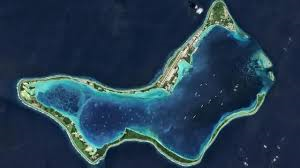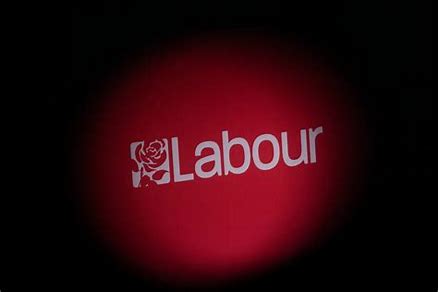Restore Democracy
The Ask
What's the Ask?
STOP Labour’s Reckless Plan to Abandon the UK’s Chagos Base!
Objective & Focus Area
Primary Objective
Create Awareness, Stop Negative Outcomes, Co-Create New Realities
Activity Description, Why This Matters Now, & Future State
Content
The UK Labour Party has announced plans to relinquish control of the Chagos Islands, including the Diego Garcia military base, one of the most strategically important defense assets in the Indian Ocean. This reckless decision threatens UK and allied security interests, weakens regional stability, and abandons the Chagossian people yet again.
🚨 Why Does This Matter?
🔴 A Strategic Disaster – The Chagos base has been a crucial hub for UK and US military operations, counter-terrorism efforts, and global maritime security. Abandoning it would create a dangerous power vacuum in the Indian Ocean.
🔴 Chagossian Rights Ignored – Instead of securing a future for the displaced Chagossians, Labour is washing its hands of responsibility without guaranteeing their resettlement, citizenship rights, or long-term security.
🔴 A Gift to China & Adversaries? – Mauritius, which is expected to take control if the UK withdraws, has growing ties with China. Could this lead to a Chinese military presence in a region crucial to Western security?
🔴 The UK’s Global Influence at Risk – This move undermines Britain’s strategic position, weakens NATO coordination in the Indo-Pacific, and signals a retreat from global responsibility.
🔴 Why This Matters NOW
💡 This is a reckless decision with long-term consequences for the UK, its allies, and the Chagossians.
If Labour follows through, we risk:
✅ Losing a vital defense and intelligence hub in the Indian Ocean.
✅ Leaving the Chagossians in limbo, again, without a clear path forward.
✅ Surrendering influence in a region where global powers are competing for dominance.
🌍 Future State – Retain the UK Military Base & Secure the Chagossians' Future
🔹 Maintain UK Sovereignty – The UK must retain control of Diego Garcia and the Chagos Islands to protect national security and regional stability.
🔹 Ensure Chagossian Rights & Resettlement – Instead of abandoning them, the UK should restore residency rights, offer compensation, and facilitate their return to their homeland.
🔹 Strengthen UK & US Defense Cooperation – Diego Garcia is vital for joint military strategy. Rather than withdrawing, the UK should enhance its presence and investment in the region.
🔹 Prevent Adversarial Influence – The UK must block any potential military or political influence from China or other hostile nations in the Chagos Islands.
🔹 Global Responsibility – Britain must stand firm and protect the Chagos Islands as a critical defense and humanitarian asset.
🚨 Why Does This Matter?
🔴 A Strategic Disaster – The Chagos base has been a crucial hub for UK and US military operations, counter-terrorism efforts, and global maritime security. Abandoning it would create a dangerous power vacuum in the Indian Ocean.
🔴 Chagossian Rights Ignored – Instead of securing a future for the displaced Chagossians, Labour is washing its hands of responsibility without guaranteeing their resettlement, citizenship rights, or long-term security.
🔴 A Gift to China & Adversaries? – Mauritius, which is expected to take control if the UK withdraws, has growing ties with China. Could this lead to a Chinese military presence in a region crucial to Western security?
🔴 The UK’s Global Influence at Risk – This move undermines Britain’s strategic position, weakens NATO coordination in the Indo-Pacific, and signals a retreat from global responsibility.
🔴 Why This Matters NOW
💡 This is a reckless decision with long-term consequences for the UK, its allies, and the Chagossians.
If Labour follows through, we risk:
✅ Losing a vital defense and intelligence hub in the Indian Ocean.
✅ Leaving the Chagossians in limbo, again, without a clear path forward.
✅ Surrendering influence in a region where global powers are competing for dominance.
🌍 Future State – Retain the UK Military Base & Secure the Chagossians' Future
🔹 Maintain UK Sovereignty – The UK must retain control of Diego Garcia and the Chagos Islands to protect national security and regional stability.
🔹 Ensure Chagossian Rights & Resettlement – Instead of abandoning them, the UK should restore residency rights, offer compensation, and facilitate their return to their homeland.
🔹 Strengthen UK & US Defense Cooperation – Diego Garcia is vital for joint military strategy. Rather than withdrawing, the UK should enhance its presence and investment in the region.
🔹 Prevent Adversarial Influence – The UK must block any potential military or political influence from China or other hostile nations in the Chagos Islands.
🔹 Global Responsibility – Britain must stand firm and protect the Chagos Islands as a critical defense and humanitarian asset.
Glimpse Into The Future
Desired Outcomes
Common Sense Followed, Security Improved, Trust Restored
Listing Detail
Problem Category
Political Issues
Images
Main Video
Location or Area Impacted
Address
Chagos Archipelago, Seabreeze Village, British Indian Ocean Territory
Next Steps
Help Needed
Advice, Political Will, Publicity, Debate, Public Support, Political Change
Other Help Options
Like or Dislike Listing, Review Listing, Share Listing
Next Steps
Start with a like, and let's see how we can exert enough pressure to have this decision reverted.
Post Review
Login to Write Your ReviewThere are no reviews yet.









